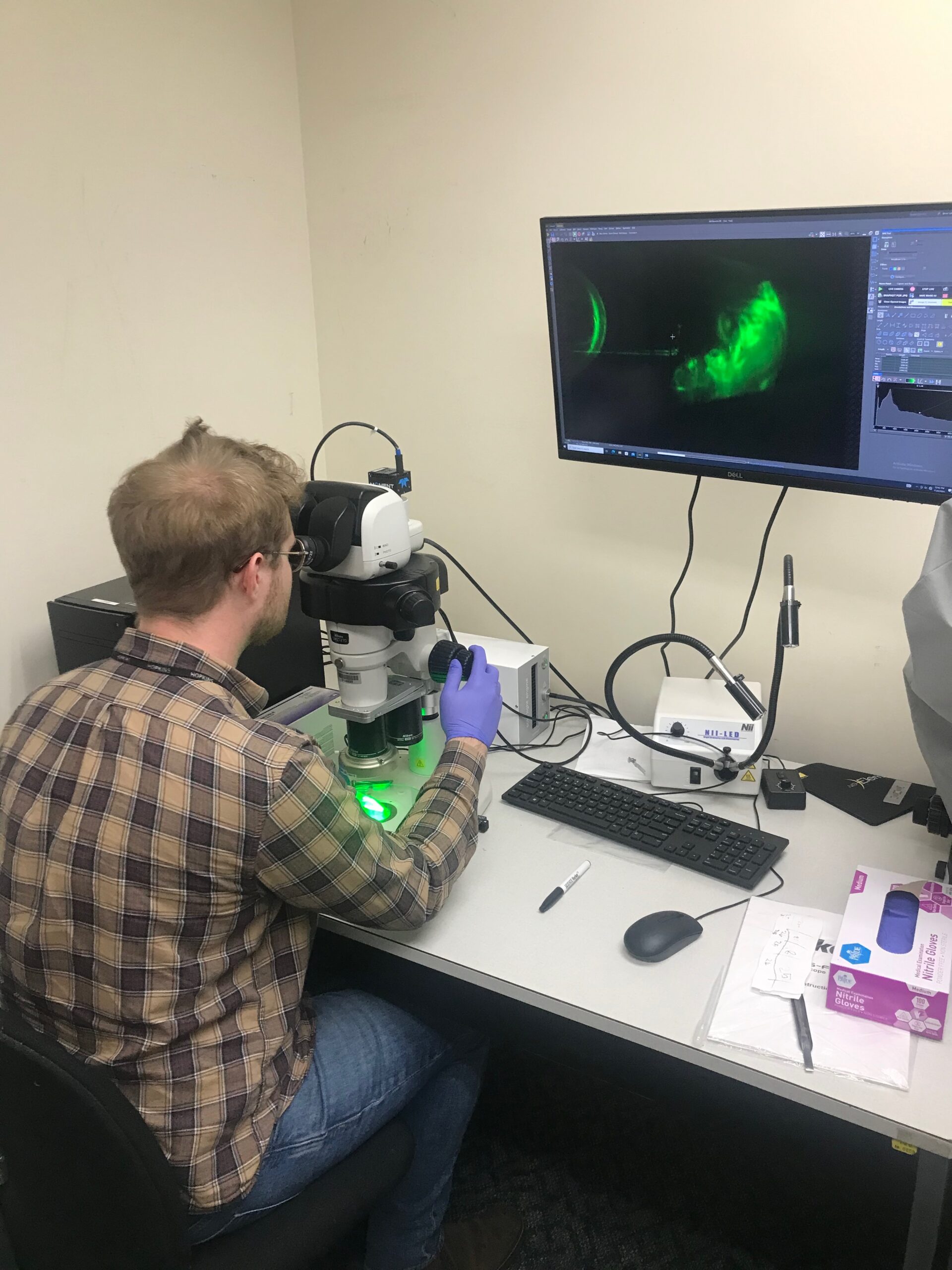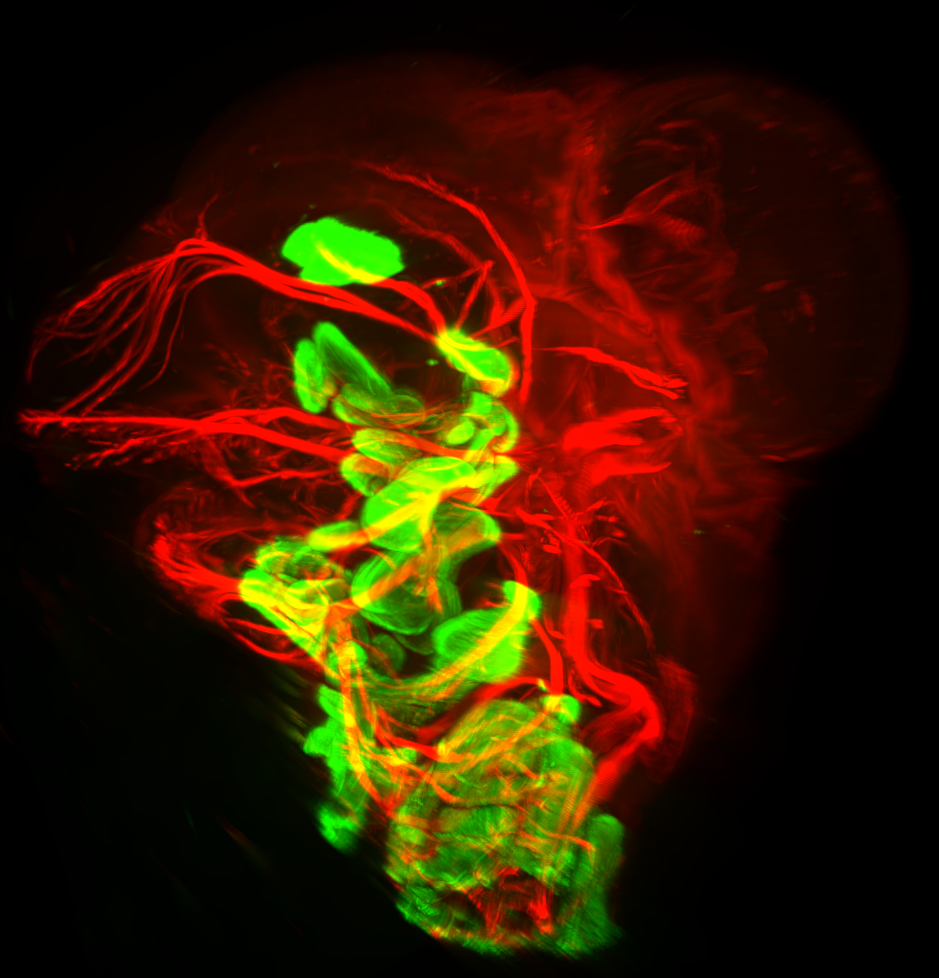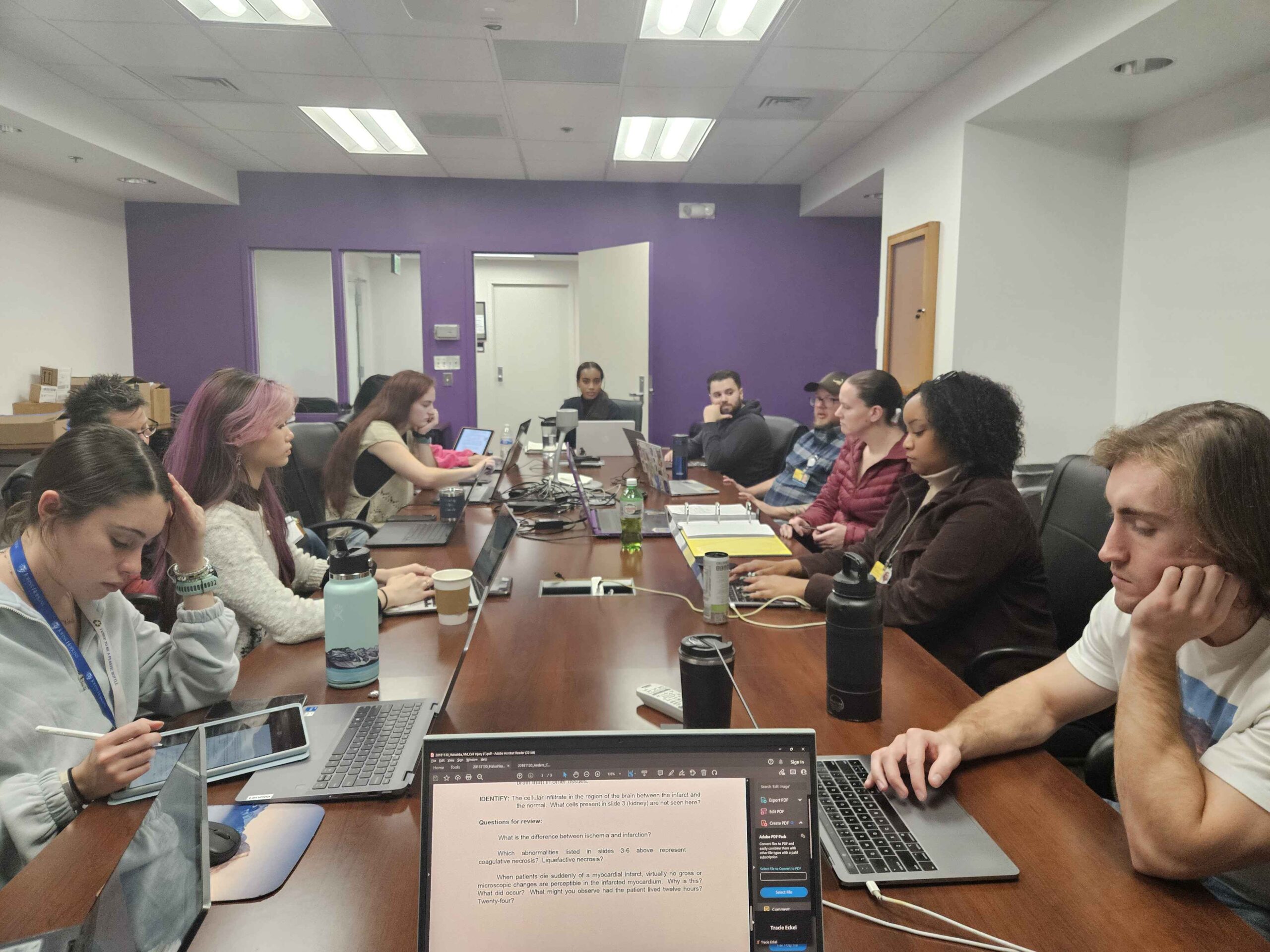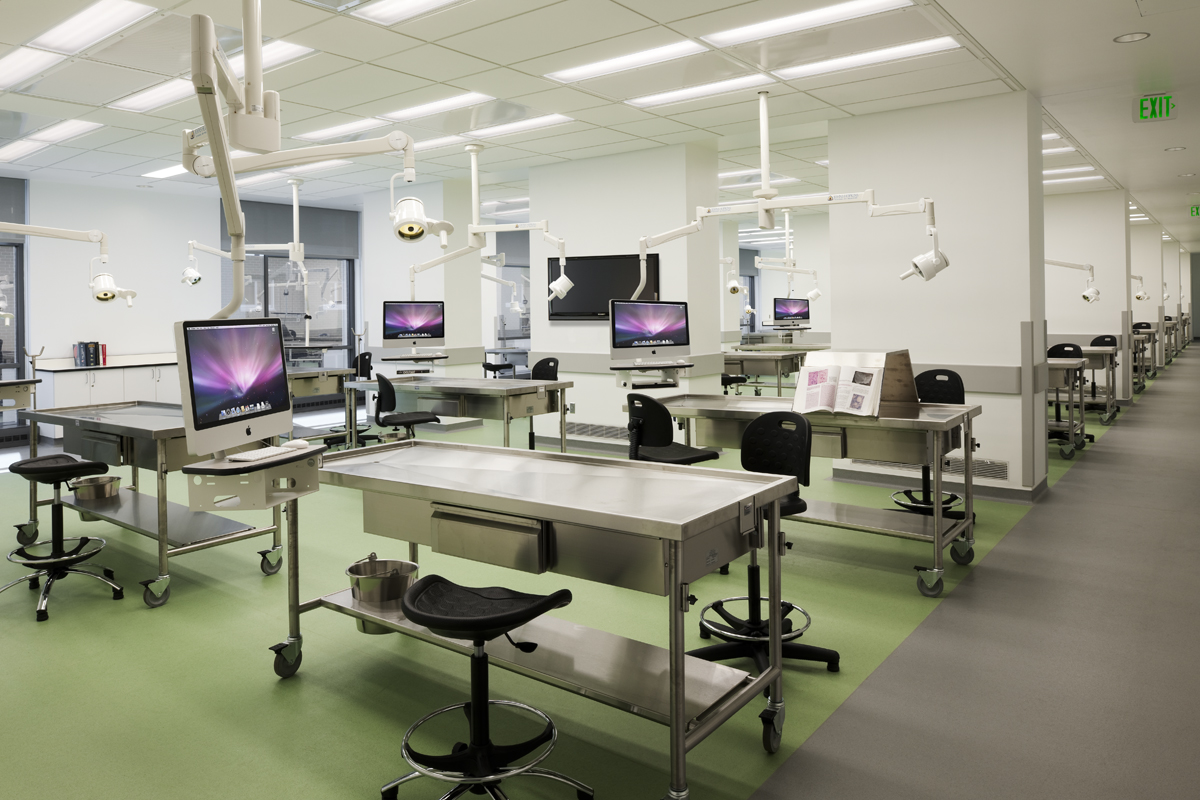MSAE Program Design
The MSAE program utilizes a set of core courses in the basic sciences and education to provide a synthetic learning experience that will prepare students for their next career challenge.
MSAE Core Curriculum
Human Anatomy: Functional, Clinical, and Developmental Perspectives
The curricular year begins in mid-August with Human Anatomy: Functional, Clinical, and Developmental Perspectives. This course is an immersive, 8-week exploration of the human body taken alongside 1st year Johns Hopkins medical students and other biomedical graduate students. Lectures from both basic science and clinical faculty are supplemented with student-led dissections and small-group activities to provide understanding of both the organizational principles on which human anatomy is constructed and the detailed features through which critical function is realized.
Introduction to Histology and Physiology
Completion of the human anatomy course in early October is followed by short courses in histology (Introduction to Histology) and physiology (Introduction to Human Physiology), which are taught through the Schools of Medicine and Public Health, respectively. These courses help students to bridge their understanding of gross anatomical features with knowledge of the underlying tissue, cellular, and molecular foundations. The histology course provides opportunities for hands-on experience in preparing and analyzing histological samples across a range of imaging modalities that includes classic microtomography and staining, immunohistochemistry, and iodine-enhanced computed tomography. The course also explores how histological data may now be integrated with insights from multi-omics to provide unprecedented resolution of structural complexity.
Theory and Practice of Science-Based Communication
In December, students begin the first of three short-courses in the theory and practice of science-based communication – Instructional Strategies I & II, and Assessment Feedback & Evidence-Based Teaching. These courses run through the spring semester (ending in May) and represent a collaboration with the internationally acclaimed Johns Hopkins Master of Education in the Health Professions (School of Education). Students train alongside medical students and health professionals in educational strategies that will improve their ability to communicate complex ideas in the classroom, boardroom, operating room, and beyond.
Advanced Dissection & Research
Advanced Dissection & Research is a spring course that runs from January through May and is administered through the Center for Functional Anatomy & Evolution (School of Medicine). The course explores the theory and practice of anatomical research through group readings and discussions but also through individualized research projects. Students work with faculty to design a personal research experience that maximizes both their intellectual interests and career goals. Here “Advanced Dissection” may be realized literally with advanced approaches to the physical dissection of human or non-human tissues, or the term may be interpreted more liberally with activities ranging from multimodal imaging of developmental and adult anatomy, computational approaches to modeling embryogenesis, capturing and analyzing anatomical shape data, biomechanical analyses of vertebrate feeding systems, reconstructing the evolutionary history of clinically relevant signaling pathways, or even the meta-analysis of educational strategies in anatomy curricula. This course is an opportunity to think imaginatively, do a ‘deep dive’ in what interests you, and explore the vast research opportunities and resources in the basic and clinical sciences at Johns Hopkins University.
Anatomy Teaching Practicum
The curricular year ends with the program’s capstone course, Anatomy Teaching Practicum. This course builds on newly acquired anatomical and pedagogical knowledge to explore the real-world issues that anatomists face in the educational, research, clinical, and administrative work place. Readings and group discussions are supplemented with individualized projects that provide invaluable experience in activities such as writing a teaching and/or research statement for a faculty job application, writing a research grant application, developing an innovative, anatomy-based course or short course, and preparing and delivering effective oral presentations. The course also provides opportunities for hands-on experience in teaching clinically based human anatomy to John Hopkins nursing students. Finally, each student will practice their communication skills by constructing and delivering a platform presentation in the annual MSAE Research Symposium. This is a rare opportunity to gain experience in effectively communicating complex anatomical and research details in a supportive, friendly environment.

Supplementing the Core Curriculum
With the exception of the two months encompassed by the Human Anatomy course, the MSAE program offers considerable latitude to pursue additional activities that will heighten your learning and growth while at Johns Hopkins. These activities might include additional coursework that more specifically targets your interests and career goals, rotations through multiple labs to better understand a range of theory and practice in biological research, joining a particular research lab to expand more specific research skills and begin building your own research portfolio, or simply attending the large number cutting-edge seminars that are sponsored by Johns Hopkins each day and that attract leading basic science and clinical researchers from around the world. For more information regarding specific ongoing research inside the FAE see the individual lab websites. Johns Hopkins is a big place with a wealth of opportunities. Our MSAE program will help you navigate these opportunities to make your year at Hopkins great!
We also realize that many students have responsibilities that limit their time or even their ability to be on campus for much of the year. Flexibility is fundamental to the program, so please reach out to discuss possibilities before deciding that you are unable to benefit from the MSAE experience.




